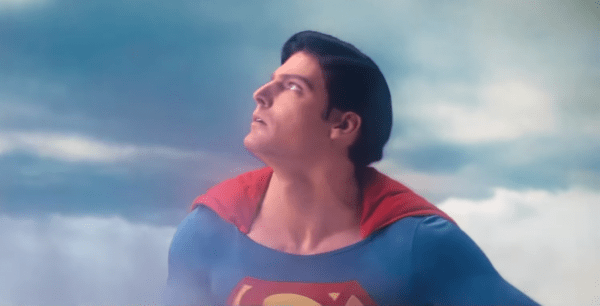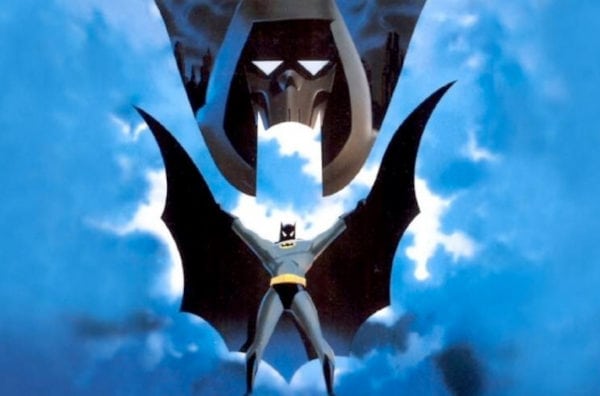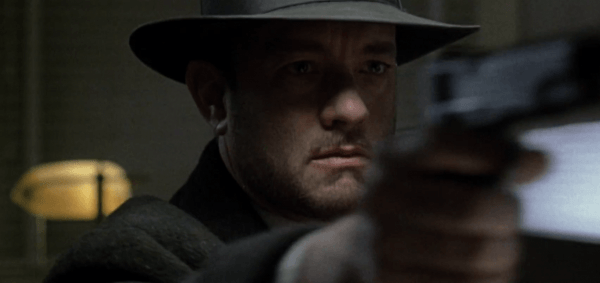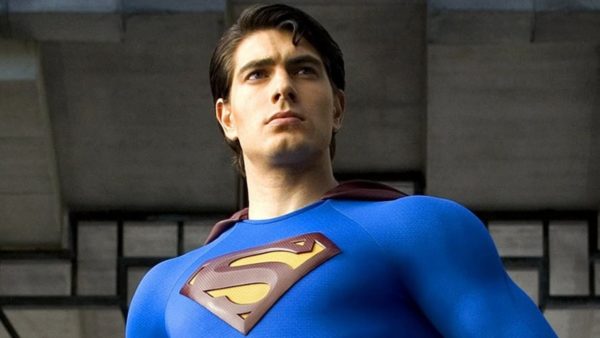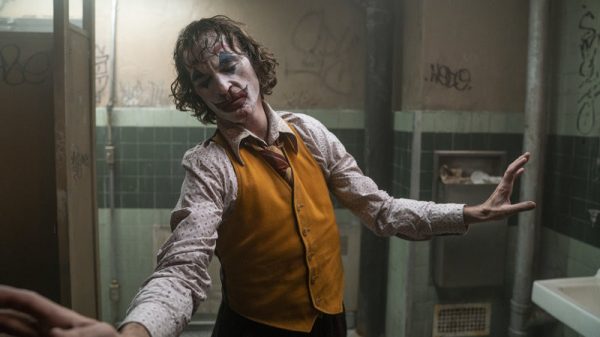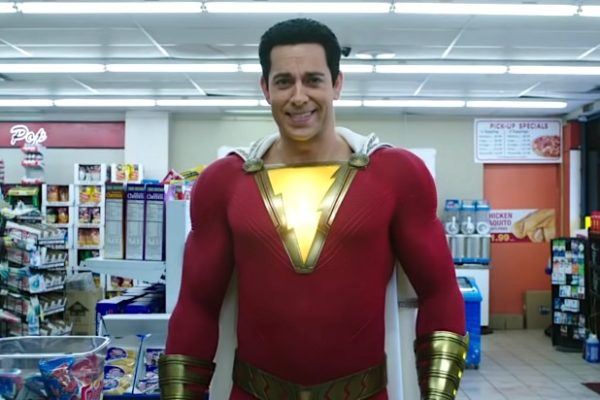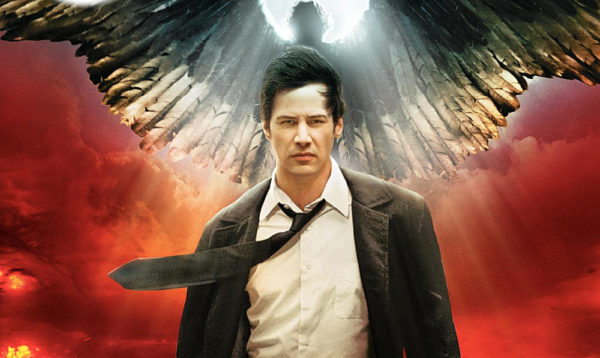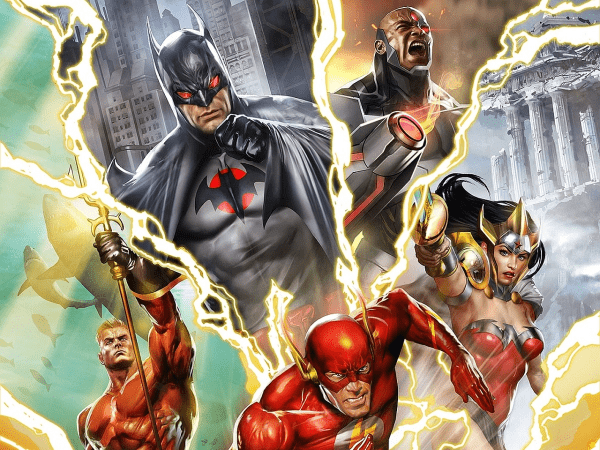Hasitha Fernando on the top ten film scores based on DC Comics properties…
When it comes to big screen adaptations, DC Comics were way ahead of the curve than their Marvel counterparts. Of course, that’s not to say that films based on DC Comic properties have been consistent throughout, but as evidenced by Christopher Nolan’s The Dark Knight Trilogy and as of recently, Todd Phillip’s Joker, they have an uncanny knack of surprising you, taking their films to new and unchartered territories. The same can be said of their animated outputs as well. So, without further ado, here are the top ten film scores based on DC Comic properties, in no particular order.
Superman (John Williams, 1978)
In the wake of The Omen’s success in 1976, director Richard Donner was hired to direct the big screen adaptation of Superman. Although the film went on to become a critical and commercial success, the atmosphere behind-the-scene was a tumultuous one. So much so that, even when it came to deciding the composer for the film, this tense situation prevailed with Jerry Goldsmith initially being considered before producers settled on John Williams. And the rest, as they say, is history. Williams went on to prove that his previous Oscar-nominated work for Star Wars and Close Encounters of the Third Kind wasn’t an unlikely chance occurrence; he was the genuine article. His Wagnerian score likewise, is nothing short of amazing, paying tribute to the Big Blue Boy-scout’s heroics and what Superman embodies as a character. William’s effort won the hearts of fans and went on to become the benchmark of future sequels but no one since has been able to replicate the maestro’s magic. Like the Son of Krypton himself… it is simply out of this world.
Album Highlights: Theme from Superman, Planet Krypton, Love Theme, End Theme
Batman (Danny Elfman, 1989)
Back in the late 80’s the hiring of enigmatic auteur Tim Burton to direct the blockbuster actioner Batman certainly was certainly an unconventional move by Warner Bros. But it proved to be a gamble that paid off in spades, revitalizing the comic book property and launching a franchise in the process. What a lot of people didn’t expect was what Tim Burton protégé, Danny Elfman would bring to the table. Bu rest assured what he delivered was nothing short of amazing since, three decades later its music still remains one of the film’s most memorable aspects. What Elfman has crafted through his music here, encompasses everything what Batman as a character represents. The sepulchral overtones of the source material, as well as the character’s tragic origins and brooding persona, all serve as inspiration for Elfman as he crafts the quintessential score for the caped crusader… and it is a timeless one.
Album Highlights: Batman Theme, First Confrontation, Up the Cathedral, Waltz to the Death
Batman: Mask of the Phantasm (Shirley Walker, 1993)
For the longest time Batman: Mask of the Phantasm remained my all-time favorite Batman film, until Christopher Nolan’s Batman Begins came along. It was the first original theatrical film produced by Warner Bros. Animation and was in essence a continuation of the overall narrative of the critically acclaimed Batman: The Animated Series. As a result, the entire cast and crew of said series, reprised their respective roles for this effort, and that included the return of composer Shirley Walker as well. To cut a long story short, the only effort that even remotely comes close to Elfman’s dark gothic score is Walker’s effort in this film. Think Elfman’s Batman, but considerably darker, replete with haunting choral sections bolstered by epic symphonics. It’s truly saddening we never got to hear more of this talented composer’s outputs for the franchise due to her untimely death, but damn, the legacy she left behind will never be forgotten. I highly recommend the expanded La-La Lands Records release version to appreciate in full, what the late Shirley Walker has accomplished for this film.
Album Highlights: Main Title, The Promise, Ski-Mask Vigilante, Birth of Batman
Road to Perdition (Thomas Newman, 2002)
Most people tend to forget that director Sam Mendes’ visually arresting gangster drama from 2002 is based upon a graphic novel published by DC Comic’s imprint, Paradox Press. The film won the love of audiences and critics alike nabbing a posthumous Oscar win for legendary cinematographer Conrad L. Hall as well as a nomination for Thomas Newman’s score. I’m not going to lie, from the moment I experienced this beautifully haunting yet dissonant score unfolding in tandem with the imagery on screen, I was mesmerized by it. This is Newman bringing in his A-game and as expected from a score composed by the man, the music is utterly moody and atmospheric as well. In a nutshell, the score acts more like a tribute to Newman’s body of work, merging his compositional styles from the orchestral heavy 1990’s along with his penchant for utilizing exotic instrumentations in the 2000’s, and it makes for one unforgettable listen. An absolute masterpiece of the first water.
Album Highlights: Rock Island- 1931, Road to Chicago, Dirty Money, Meet Maguire
Batman Begins (Hans Zimmer & James Newton Howard, 2005)
In the late-90’s the Batman franchise hit an all-time low with the release of Joel Schumacher’s much maligned Batman & Robin. Nearly a decade later it took one indie-film director by the name of Christopher Nolan to successfully reboot the property successfully. For his film Nolan brought in Hans Zimmer and James Newton Howard to help craft the soundscape of this edgier, contemporary take on the Caped Crusader. It’s quite apparent Nolan wanted his version of Batman to be different to its predecessors, and as a result none of the contributions by previous composers are referenced through the music by Zimmer and Howard. A good thing too, since neither Elfman’s overtly gothic sound nor Elliot Goldenthal’s flamboyant silliness would work here. This required a more utilitarian, pragmatic approach and that is what this musical duo brings to the table, with Zimmer working on the edgier dramatic aspects and Howard tackling the more melodious parts of the score. The end product was a vastly different score, which packed a robust Bat-sized punch.
Album Highlights: Eptesicus, Molossus, Barbastella, Myotis
Superman Returns (John Ottman, 2003)
Since John Williams’ penned his now immortalized score for Superman in 1978, the franchise has served as a revolving door for various composers in a multitude of mediums. Most notable of which were Ken Thorne and Alexander Courage’s contributions in the Superman sequels, as well as Jay Gruska’s effort for the Lois & Clark: The New Adventures of Superman TV series. But despite their best efforts, none of them were able to intelligibly advance the musical ideas of the original film. However, 25 years later under composer John Ottman’s watchful gaze a successor worthy of Williams’s work in the original finally happened. I’ve been familiar with Ottman’s efforts over the years, collaborating frequently with director Bryan Singer on The Usual Suspects, Apt Pupil and X2: X-Men United, but this is undoubtedly the jewel in the crown of his achievements, at that point in time. And if you are looking for a score that flawlessly adapted and progressed the originals music ideas whilst conjuring fresh, original ones, look no further than Ottman’s work here. It is the perfect companion piece to Williams’ original.
Album Highlights: Memories, How Could You Leave Us, So Long Superman, Reprise/Fly Way
Joker (Hildur Guðnadóttir, 2019)
At this point in time Todd Philip’s Joker walking away at least with a few Oscars, is pretty much an absolute certainty. The film racked up a whopping 11 nominations last week making it the highest Oscar nominated film of 2019. One of the most unforgettable aspects of Joker is undeniably it’s hauntingly dissonant score crafted by Icelandic musician Hildur Guðnadóttir. It may sometimes be a laborious task listening to it on album format, but it’s hard to imagine the film, without it. The music by Guðnadóttir elevates and compliments the film in many ways making the overall cinematic experience that much more impactful. Having swept the 2019 award season for her musical contribution for Joker it’s quite likely Guðnadóttir will inevitably walk away with the coveted Oscar award as well, come February. And I cannot think of a more deserving composer than her, to win this top prize.
Album Highlights: Defeated Clown, Bathroom Dance, Penny Taken to the Hospital, Call Me Joker
Shazam! (Benjamin Wallfisch, 2019)
Benjamin Wallfish’s score can be defined as the very anti-thesis of Zimmer’s efforts for the DC Comic properties. It functions as both a playful throwback to the superhero sounds of yesteryear, as well as being a love-letter to John Williams body of work. Everything from Williams’ music for Indiana Jones to Superman and E.T. is referenced here. And boy oh boy, it’s an absolute joy to listen to this score, which is a far cry from the perpetually monotonous recycled sound being passed off as ‘film-scores’ these days. Wallfisch captures both the comedic, light-hearted aspect of the film as well as the sinister, darker aspects with absolute ease, making for a wholesome listening experience. The past few years have been tremendous for Wallfisch with contributions to films like Blade Runner 2049, It Chapter 1 & 2 and Annabelle: Creation. And if the score for Shazam! is any indication, we can expect great things from this talented composer, in the coming decade.
Album Highlights: Shazam, The Consul of Wizards, Seeking Spell, Finale
Constantine (Brian Tyler & Klaus Badelt, 2005)
The big screen adaptation was cynical occult detective John Constantine was based upon the DC/Vertigo comic book property Hellblazer by Jamie Delano and Garth Ennis. Although the comics depicted him as a hard-drinking Englishman resembling singer-songwriter Sting, the film took certain liberties, portraying him as a snarky chain-smoking American. Overall, Constantine was generally well received by critics and audiences alike and has since its release, developed a cult-following of sorts. The score too has received praise over the years for its unique blend of orchestral and synthetic elements with Tyler being responsible for the former, and Badelt for the latter. It’s a well-known fact however that Warner Bros., dissatisfied with Tyler’s brooding orchestral score hired Klaus Badelt to inject some ‘cool’ at the eleventh-hour. Thankfully though the end result, is a success. Though one wonders, what a score composed solely by Tyler would have sounded like, in the context of this unique theological noir action film.
Album Highlights: Meet John Constantine, Deo et Patri, Resurrection, Circle of Hell
Justice League: The Flashpoint Paradox (Frederik Wiedmann, 2013)
If there is one consistent aspect of the DC Animated Universe (DCAU) for the past few years, it has got to be German composer Frederik Wiedemann’s musical contribution for it, which acts as a connective-tissue of sorts, maintaining a sense of continuity from a musical perspective. But despite scoring music for over ten films in the DCAU, JL: The Flashpoint Paradox still remains his superior most effort. His musical style is a beautiful blend of rich orchestral elements and electronic synthesizers. The pulse-pounding action compositions bring to mind the works of veteran composers John Debney and Brian Tyler while the moodier yet melodious segments hint at some of maestro Thomas Newman’s efforts. But by and large, this is a fairly dark score, as befitting the hard-hitting edgy animated affair but that never detracts one’s listening experience. Here’s hoping Mr. Wiedmann, continues his journey in the DCAU.
Album Highlights: The Incident, Rogue, Last Man Standing, Hell of a Messenger
Hasitha Fernando – Follow me on Twitter.
